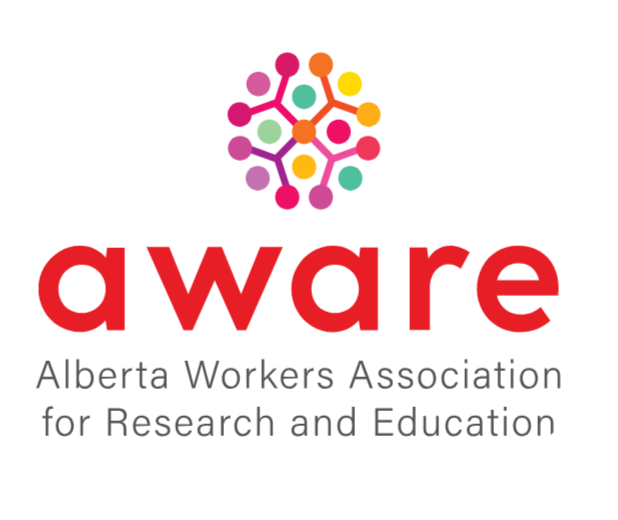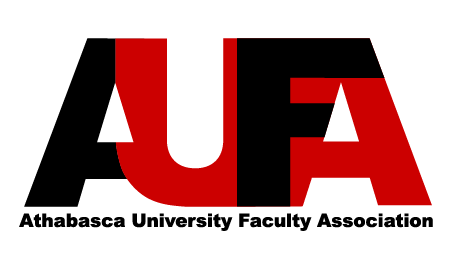Some children in Alberta are being denied access to education. They are blocked from registering in school because of their parents’ precarious immigration status.
This is a grassroots campaign led by International Migrants Alliance - Alberta and supported by AWARE.
Contact the Education4All campaign directly for more information: ed4all.alberta@gmail.com
In their own words
Hear from some of the brave kids speaking up to defend the rights of all children and youth.
G7 Jubilee People’s Forum – Speeches from Youth
-
My name is Yael, and I’m here today not just to speak but to be heard. I’m undocumented. And for a long time, that felt like something I had to hide. Like something that made me less than everyone else.
But I’m not less. I’m a student. I’m a dreamer. I work hard. I care. And I have dreams just like anyone else. I want to learn. I want to grow. I want to do something good in this world. But there are days when it feels like all of that doesn’t matter—just because I don’t have the right papers.
It hurts to feel like I’m not allowed to belong. To see other kids walk freely into schools, talk about college, make plans, while I wonder if I’ll even be given the chance. And I’m not the only one. There are so many of us—kids who are doing our best, while carrying a silent fear that everything could be taken away.
But I’m standing here today because I believe we deserve better. We deserve the right to learn, to dream, and to be treated like we matter. Education isn’t a privilege—it’s a right. And it should be for every child, not just the ones with the right documents.Thank you.
-
Hello everyone, I’m Dayana. I’m an undocumented student and also a youth, and I want to raise my voice for all the children and teenagers who are in this country without status, who cannot study or have access to health because they are children of undocumented parents.
In Alberta they deny access to school and in some cases kick children out of elementary schools. Students are not allowed to register in school because of discrimination based on our immigration status.
This is a violation of the human rights of minors!!
And I know people will say, “go back to your country,” but it’s not safe – because of the death. The government can’t even afford to pay the police properly, and that’s why they have a lot of corruption with police and cartels.
Now we are in a campaign so that undocumented children and teens can study!!
Only the people who live this situation know what it is like to live. Here in Canada they promote that it is a safe country for children. But when I used to go to school, I had to watch my back from police officers because I was scared.
I ask for all your support and solidarity so that all this changes!!! WE NEED STATUS FOR EVERYONE!!
-
Hello everyone, and thank you for being here.
Today, I want to talk about something really important to me, something that affects not just my family but so many others too. I want to talk about undocumented kids who can't go to school.
Right now, I have three younger siblings who got kicked out of Catholic school and haven’t been in school for over two years. Not because they don’t want to learn, and not because they did anything wrong, but because of something they had no control over: their immigration status.
People forget that kids don’t choose to leave their country. Our parents make that decision, not out of selfishness, but out of love. They’re risking everything, leaving behind their homes, their families, and the life they knew because they believe they’re doing what’s best for us. Because in many cases, going back isn’t even an option. There’s probably a reason we left. Danger, poverty, violence, and going “back” doesn’t mean going back to safety. It means going back to uncertainty. To fear.
But instead of being welcomed here, some of us are punished. My siblings want to learn. They want to make friends, be part of something, dream big, just like any other kid. But they’ve been told they don’t belong in a classroom. That they can’t sit at a desk, or read a book, or raise their hand to ask a question.
And I’ve seen what that does to them.
When kids are shut out of school, it doesn’t just affect their education. It hurts their confidence. It makes them feel invisible, like they’re not allowed to be part of the world everyone else lives in. It affects their mental health. They feel isolated, anxious, and ashamed of something they never chose. They miss out on making friends, on playing at recess, and on feeling like they belong.
It’s heartbreaking to see someone so young already losing hope.
Sometimes it feels like no one really sees what it does to kids when they’re kept out of school , how much it messes with their self-esteem, their mental health, and how alone they start to feel. My siblings didn’t do anything wrong. They just want to learn, to be around other kids, to feel normal again.
Thank you for listening.
“I’m a student. I’m a dreamer. I work hard. I care. And I have dreams just like anyone else. I want to learn. I want to grow. I want to do something good in this world. But there are days when it feels like all of that doesn’t matter—just because I don’t have the right papers.”
Sign the petition
Add your name to a petition to the Legislative Assembly of Alberta to change the Education Act to not only remove discriminatory language but also to affirm equal access to education for all, regardless of immigration status.
Petitions to the provincial government must be signed in person. Contact the Ed4All campaign to arrange to sign.
Or, even better, download a petition form and gather signatures from your family, friends, coworkers, and neighbours! Contact the Ed4All campaign with any questions.
Change the Alberta Education Act
The Education Act must be changed to remove discriminatory restrictions and ensure access to education for all children living in Alberta.
The Alberta Education Act defines “resident” as limited only to those “lawfully entitled to be or remain in Canada.” This must change. A child’s immigration status has nothing to do with their fundamental human right to access education.
Alberta should follow the example set in Ontario, where the education act positively affirms that children shall not be refused admission or funding due to immigration status.
This legislative change must also be supported by revised regulations and policies, including in the funding manual, to remove discriminatory requirements that put school staff in the position of verifying immigration documents. This recognition that school officials are not immigration experts would align with the current provincial government’s priority to cut “red tape.”
Why is this happening?
The Alberta Education Act includes immigration-specific restrictions for who is considered a resident student, and school boards have begun denying registration for children on this basis.
However, immigration status in Canada is complex, with multiple pathways to permanent residency. There are many reasons why individuals and families may fall into a more precarious immigration status, including bureaucratic delays and rule changes, health issues, and experiences of exploitation and abuse.
Education is a human right
The right to education as a fundamental human right is affirmed in the United Nations Universal Declaration of Human Rights (Article 26). Further, Article 28 of the United Nations Convention on the Rights of the Child recognizes “the right of the child to education” and directs signatories (including Canada) to “make primary education compulsory and available free to all.”
The threat of removal from schools compounds the stress families and children face as they are already struggling to navigate life in Canada. When children are out of school, it has adverse effects on their mental health in the present and future, which affects all of society. Of course, students’ academic progress also suffers, putting them at a significant disadvantage if and when they are able to return to school.
Full access to education doesn’t end at being allowed to register. While in school, children should receive appropriate support, accommodations, and protections from discrimination. Unfortunately, in Alberta we have seen discriminatory attacks from the provincial government on students with disabilities and on gender diverse students. In a recent injunction related to the Minister of Education’s decision to exclude students with disabilities from in-person learning, a Court of King’s Bench judge affirmed that the provision of education is “a fundamental service owed to all young people.”
School Boards Can and Should Act
School boards are already empowered to accept enrollment from all children.
The Alberta Education Act gives school boards the authority to accept enrollment from “non-residents” and to determine the amount to charge for tuition fees. However, erecting financial barriers is not a solution.
School boards can and should find ways to accommodate all children. In British Columbia and Ontario there is precedent for working with school boards to allow admission to children who have a transitional immigration status.
Sanctuary school or safe zone policies are a necessary step further, as these policies ensure the safety of all kids while they are at school. There is significant precedent and a thriving sanctuary schools movement in the United States; in Canada at least three jurisdictions have adopted sanctuary school policies (New Westminster, Greater Victoria, Sooke). Such policies would ideally be accompanied by training to help school staff provide meaningful support for all students.
Join us in advocating for EPSB to act
As one of the largest school boards in the province, the Edmonton Public School Board has a responsibility to take action. We have been advocating for action at public meetings of the school board.
At the May 27, 2025, board meeting, the trustees unanimously approved two motions in support of undocumented children’s right to access education:
We applaud the EPSB trustees for these motions. We are hopeful that there will also be specific accommodations made for children who are currently not attending school.
In adopting these motions, board trustees were responding to the powerful statements past speakers have made. See the recordings of speeches from community members at past board meetings:
Some meetings also featured folks speaking out about kids with disabilities being denied access to inclusive education as well as folks speaking in solidarity with striking CUPE members. We stand firmly in solidarity with all these speakers. Education is a human right and education workers should be respected!
We will continue to advocate for action, and we need your help. Contact the Ed4All campaign for information about speaking at a future board meeting.
Media and Resources
Alberta
Education for All campaign in the news:
CBC, December 19, 2024: Advocates sound alarm over children without status being denied education in Alberta
CBC, May 28, 2025: Edmonton public school board wants Alberta to guarantee undocumented children a right to attend school
Canadian Press, May 28, 2025: Edmonton school trustees, advocates want province to allow undocumented kids to enrol
Edmonton Journal, May 29, 2025: How Edmonton Public Schools is grappling with undocumented children
CityNews, May 31, 2025: ‘I feel like not a normal person’ Edmonton undocumented students plead with province for education
Canadian Press, June 22, 2025: Undocumented students push for right to education, but Alberta noncommittal
Ontario
In Ontario, the Education Act explicitly provides for children with precarious immigration status: “49.1 A person who is otherwise entitled to be admitted to a school and who is less than eighteen years of age shall not be refused admission because the person or the person’s parent or guardian is unlawfully in Canada.” Further guidance is provided in Policy/Program Memorandum 136.
British Columbia
In BC, the School Act provides access to any child who is “ordinarily resident” in the province. However, children continue to be blocked from accessing schools.
The School for All - BC campaign focuses on supporting families attempting to register for school and advocating for sanctuary school policies.
In 2017, New Westminster Schools was the first BC school district to adopt a Sanctuary Schools policy": https://newwestschools.ca/wp-content/uploads/2024/11/Policy-21-New-Westminster-Sanctuary-Schools-Website-170530.pdf
Sanctuary Schools Policy Review 2021/22, New Westminster Schools https://schoolforallbc.wordpress.com/wp-content/uploads/2022/04/sanctuaryschoolsreport2022.pdf
Briefing Note, Sanctuary Schools Oct 12 2021 https://sanctuarycityvan.com/wp-content/uploads/2023/01/Sanctuary-Schools-Brief.pdf
Sanctuary City Vancouver offers additional resources on sanctuary policies within education, health care, and municipal government.
International
United Nations Convention on the Rights of the Child, Articles 2.2 and 28 https://www.ohchr.org/en/professionalinterest/pages/crc.aspx
UNESCO, 2019. Global Education Monitoring Report 2019 Migration, Displacement & Education: Building Bridges, Not Walls https://en.unesco.org/gem-report/report/2019/migration
ImmigrantsRising.org, Understanding the Sanctuary School & Safe Zone Movement. https://immigrantsrising.org/resource/understanding-the-sanctuary-school-and-safe-zone-movement/
Our supporters and Allies.
International Migrants alliance-Alberta
Migrante Alberta
Familia Migrante Latino
Climate Justice Edmonton
Anakbayan Alberta
Calgary Climate Hub
CUPE Alberta
Filipino-Canadian Association of Cochrane Alberta
CUPE Local 40
John Humphrey Centre for Peace And Human Rights
Edmonton-IWW
Athabasca University Faculty Association

















